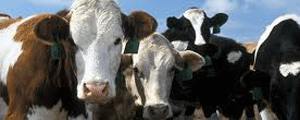
A cattle fattening programme spearheaded by the Food and Agriculture Organisation (FAO) has boosted food security in drier parts of the country that have been experiencing long dry spells that resulted in the death of livestock. BY OUR CORESPONDENT – The Standard
Cattle are a source of income for most families in Zimbabwe. FAO, in conjunction with government, is selling stock-feed to small-holder cattle farmers in dry areas of the country at a subsidised price.
It estimated that the programme has so far saved close to 100 000 animals since last year.
FAO’s Zimbabwe livestock technical officer, Basil Mugweni said the drought mitigation project was based on three interventions: “The first one is the provision of stock feed for their livestock and the second one is the provision of water for their livestock and the third one is the provision of disease control measures.”
He said money generated from stockfeed sales remained with the community livestock development associations and was used by the farmers to procure inputs for their livestock and develop infrastructural projects.
Pearson Imbayago, the chairman Livestock Development Association in Chikondo Village in Masvingo’s Mwenezi district, hailed the programme saying it had saved a lot of livestock in the province.
Imbayago said the farmers had been struggling to keep the livestock alive as they could not afford to buy stock feed.
“We are happy that the stock feed was brought to us at a cheaper price,” he said. “We used to buy it from Masvingo at US$21 but we realised that buying from Masvingo is expensive compared to the feed that is being brought to us.”
- Chamisa under fire over US$120K donation
- Mavhunga puts DeMbare into Chibuku quarterfinals
- Pension funds bet on Cabora Bassa oilfields
- Councils defy govt fire tender directive
Keep Reading
Chairman of Lutumba Cattle Breeding Association, Lovemore Ngulube said the programme has transformed their lives.
“Our future is bright. We are out of poverty after being empowered, we can now look after ourselves and the orphans left behind by our children,” he said.
Ngulube said cattle that would have been fattened fetched a higher price than those that wander around in search of food.
Matabeleland South, Matabeleland North, Masvingo, parts of Manicaland and Midlands thrive on their cattle herd but consecutive droughts had drastically slashed the herd, putting a strain on villagers.
It is estimated that between 70-85% of the rural population in the southern districts of the country own cattle, goats and sheep with an estimated 70% owning cattle.
The department of livestock production and development said between June and December 2012, an estimated 17 418 cattle died in the drier parts of the country.
The government declared the situation a national disaster.
Mugweni said the droughts had negative effects on grazing and availability of water for both humans and livestock, forcing communal farmers to move animals into game and resettlement areas for relief grazing and water.
In the game parks, he said, the livestock came into contact with wild animals exposing themselves to diseases.
“In the game parks livestock mix with wild animals carrying diseases, for example foot-and-mouth disease,” Mugweni said.











